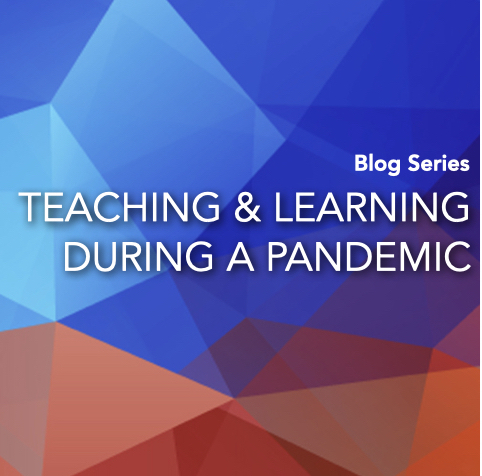Teaching and Learning During a Pandemic Blog Series
 This is Teaching and Learning During a Pandemic, a new blog series of the Albert Shanker Institute. The purpose of this effort is to create a respectful, caring and intellectually stimulating space for our readers to reflect on how the Coronavirus pandemic is shaping the face of education.
This is Teaching and Learning During a Pandemic, a new blog series of the Albert Shanker Institute. The purpose of this effort is to create a respectful, caring and intellectually stimulating space for our readers to reflect on how the Coronavirus pandemic is shaping the face of education.
This process will be facilitated by essays from colleagues who we believe are particularly well positioned to provide perspective and make sense of some of the noise and uncertainty in the current environment.
We hope the following essays not only inform you, but will facilitate your participation in educational decisions affecting our kids, our communities, and our society.

What’s Next For Schools After Coronavirus? Here Are 5 Big Issues & Opportunities
Andy Hargreaves | May 6, 2020
Educational Equity During a Pandemic
Peter Levine | May 14, 2020
Our Profession Requires Hope, Now and Ever Since
José Luis Vilson | May 19, 2020
Have We Found Héctor, Yet? A Love Letter To Educators in the Midst of Crisis
Michelle Fine | May 21, 2020
Coronavirus is a Risk to Education in America: A Comprehensive National Response is Needed
Stan Litow | May 26, 2020
Teaching During School Shutdowns Should Be a Team Sport
Susan Moore Johnson | May 28, 2020
Five Things Not to Do When Schools Reopen
Pasi Sahlberg | June 3, 2020
Federal Education Policy: From Race to the Top to the Plunge to the Bottom
Stan Karp | June 9, 2020
The Pandemic and Cultural Scripts of School-Family Relationships
Sherman Dorn | June 11, 2020
All You Need Is Love (In the Time of COVID-19)
Susan B. Neuman | June 16, 2020
School Organizational Practices and the Challenges of Remote Teaching During a Pandemic
Matthew A. Kraft and Nicole S. Simon | June 25, 2020
Marie Kondo the Curriculum
Jal Mehta and Shanna Peeples | June 26, 2020
Post Pandemic Ethics
Peter Consenstein | June 30, 2020
For Students, "Good Ole Days" Aren't Good Enough
John Jackson | July 7, 2020
Remote Learning: What Helped A Network Of Progressive Schools
Ann Cook | July 9, 2020
We Choose to Reimagine Education: Centering on Love and Emotionally Responsive Teaching and Learning
Tia C. Madkins and Alexis Patterson Williams | August 14, 2020
Research and Evidence Can Help Guide Teachers During the Pandemic
Sara Kerr and Nate Schwartz | September 2, 2020

We recognize that essential workers such as those in healthcare, public safety, food and agriculture, education and transportation, to name a few, are our first responders and the true heroes of the moment. Yet, we feel that in this chaotic moment “intellectual” first responders also have an important role to play.
The uncertainty we live in, combined with information overload, can profoundly hamper our desire to figure out where we might offer a contribution, however small.
The following are some questions and themes that we hope to cover in the series.
- To what extent is the pandemic an opportunity to reflect on what we might do differently in education going forward? Could this shock to the system represent an opportunity to go back to the drawing board and refocus our energy on what is most essential to teaching and learning?
- What can we learn from past crises and the effects on school systems: The 1918 influenza pandemic? September 11? The 2008 recession? Desegregation? World War II? Hurricane Katrina?
- Could the fact that more parents are becoming intimately involved in their children’s education through distance education help in the long run? What are the possible downsides?
- How might COVID-19 encourage us to rethink how school time is structured for students and what is prioritized in schools in ways that better serve the developmental needs of young people?
- What has COVID-19 revealed about educational inequalities in the United States? How might the COVID-19 crisis exacerbate existing inequalities? And what opportunities does the crisis open that could help education systems function more effectively for all students?
- How might we support educators as they reclaim their professional capital to better meet the emotional and learning needs of students during COVID-19?
- What kinds of school cultures and pedagogical approaches might make schools more resilient to crises such as COVID-19 and why?
- What has COVID-19 revealed about educational inequalities in the United States? How might the COVID-19 crisis exacerbate existing inequalities? And what opportunities does the crisis open that could help education systems function more effectively for all students?
- How are educational researchers approaching COVID-19 and what kinds of questions and study opportunities might this crisis bring about? How might researchers support the information and research needs of school districts and education agencies across the country?
- What should the educational philanthropy community be doing to support school systems related to COVID-19 and to help capacity building in school districts?
- How might COVID-19 encourage us to rethink the role of testing in American education?
- How might COVID-19 encourage us to rethink the role of curricula and grade-level norms in American education?
- What might the 2020-21 school year be like for teachers and students? How can we ensure that all students are well-prepared and well-served when schools reopen?

